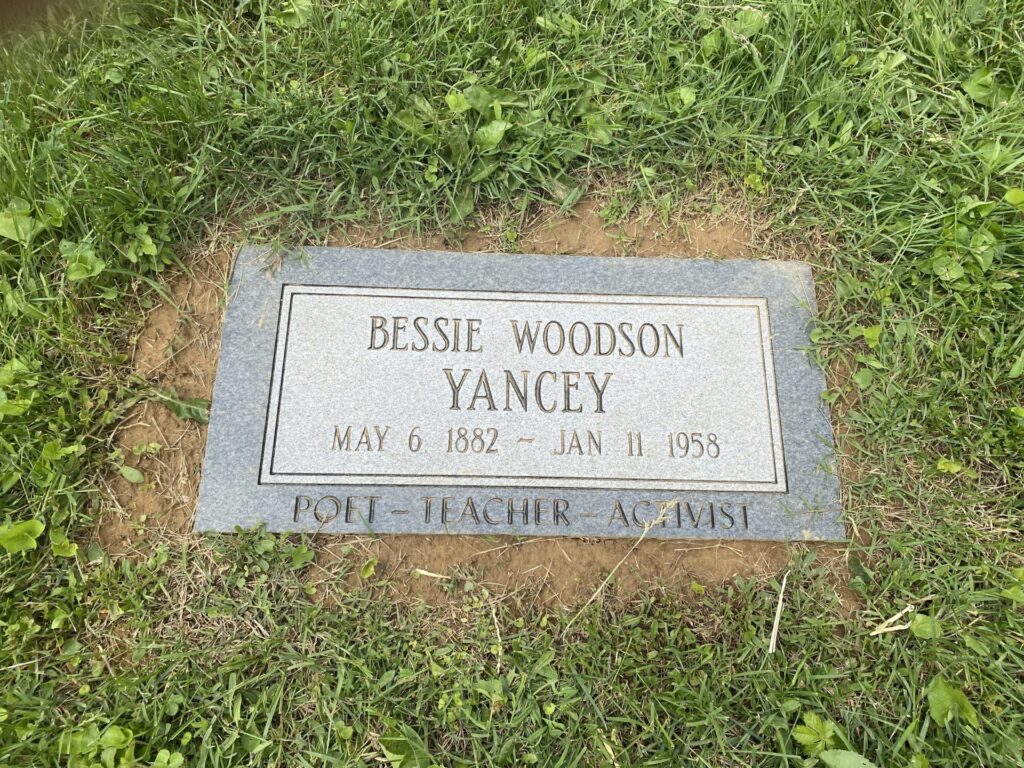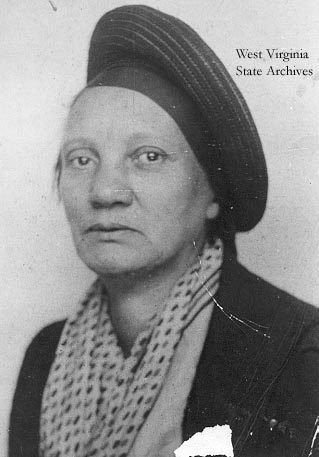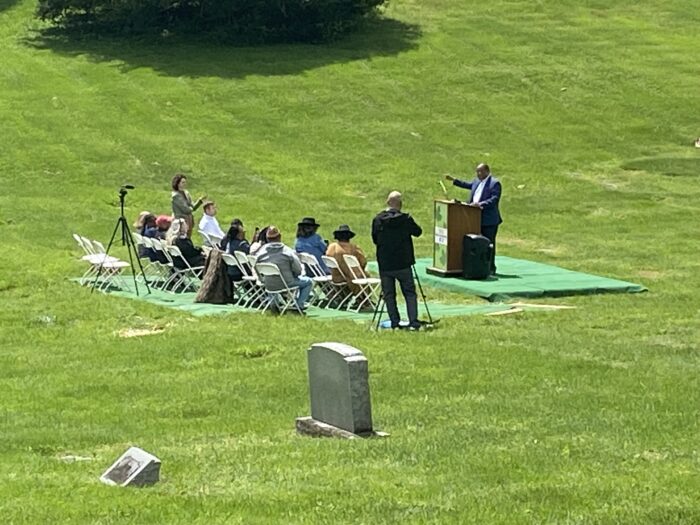W.Va. To Host First Spartan Trifecta In U.S.
Some 8,000 athletes from around the world will converge on West Virginia next month for the first Spartan Trifecta World Championship to be held in the U.S.
Continue Reading Take Me to More News
A gusty breeze blew across Huntington’s Spring Hill Cemetery grounds, as about 40 people gathered for what was termed a long overdue grave marker dedication to the sister of Black History Month founder Carter G. Woodson. Many said that Bessie Woodson Yancey did not ride her sibling’s coattails, but stood strong on her own merits.
Among those in attendance, Crystal Good, the founder and publisher of Black by God the West Virginian. In Good’s hands was Bessie Woodson Yancey’s one and only book, “Echoes From The Hills.” Good read aloud the first stanza of the Yancey poem, “If you live in West Virginia.”
“If you live in West Virginia, where the mountains rise so high, where the tumbling creeks and rivers flow from our founts that are near run dry when you have a noble feeling and you’ll never seek to roam, if you live in West Virginia, Mountain State, beloved home,” she read.
Yancey’s grave marker reads: born 1882, died 1958, poet, teacher, activist. Cicero Fain is an assistant provost of access and opportunity at Marshall University, as well as a board member of the Carter G. Woodson Memorial Foundation. Fain said Yancey’s accomplishments invoke a heartfelt respect.

“She was an educator,” Fain said. “She was a poet, activist. She wrote, I think, 100 articles in the Herald Advertiser. They were editorials commenting on race relations, desegregation, international affairs and community endeavors. She’s an exemplar of the intellectual dynamism that existed in Huntington, Charleston, throughout the southern West Virginia coal fields.”
Good, an accomplished black poet herself, said Yancey’s writings of decades ago are all the more inspiring now.
“They tell a story about a West Virginia that is literally beyond black and white, that it is a place of redemption,” she said. “That is a place where black people came for just a little bit more. You know what I mean, just a little bit more. It wasn’t the best, but a little bit more. “

Fain said Yancey’s legacy sparks a call to continue the embrace of diversity, equity and inclusion.
“This is a time in which we should not be retrenched on or attacking black history and black excellence,” Fain said. “This is a time to be celebrating it because it helps make America great, the contributions of these folks, the stories, the experiences, help build the quilt that makes us what we are.”
To complete the circle at Yancey’s gravemarker dedication, Good read the last stanza of Yancey’s poem.
“But in the words of the deathless glory, far and wide where all may see, write the name of West Virginia, champion of liberty,” she read.
There was no reason given that this grave was left unmarked for so long, but someone said that it needed to be rectified, because Bessie Woodson Yancey seemed to be one of those champions.